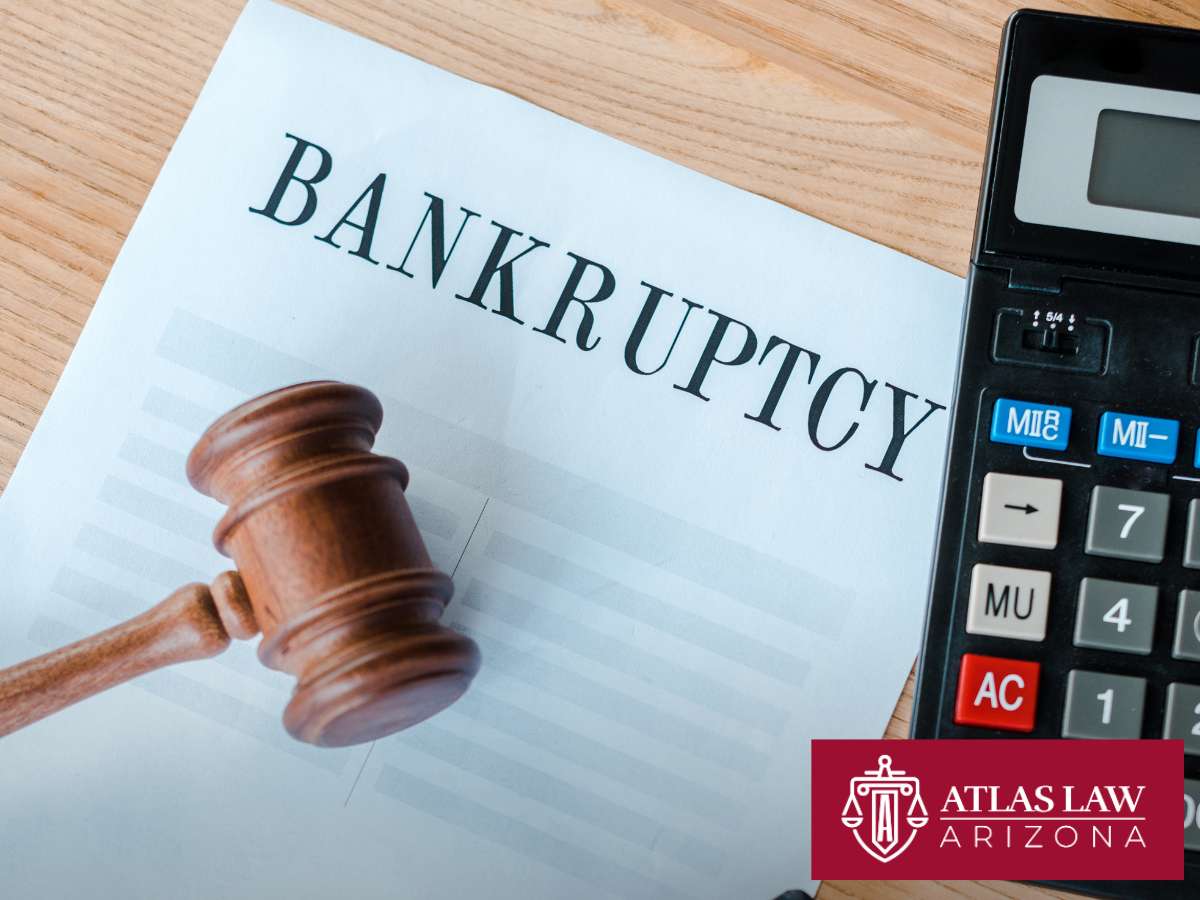When someone files for Chapter 7 bankruptcy, they are taking a step toward financial relief by liquidating their assets to pay off creditors. The process involves multiple players, but one of the most critical figures is the bankruptcy trustee. The trustee serves as a neutral party who oversees the case, ensuring that the debtor’s non-exempt assets are sold and the proceeds are fairly distributed among creditors. But beyond this basic understanding, there is much more to the role of a Chapter 7 trustee—how they are appointed, who they report to, and how they earn their income. This blog will cover these aspects in detail, including how one becomes a trustee for bankruptcy cases.
Who Is The Chapter 7 Bankruptcy Trustee?
A Chapter 7 bankruptcy trustee is a court-appointed individual who administers bankruptcy cases filed under Chapter 7 of the Bankruptcy Code. Their primary duty is to oversee the liquidation of the debtor’s non-exempt assets and to ensure that the creditors are paid as much as possible from the sale of those assets. Trustees are generally attorneys or accountants with specialized knowledge of bankruptcy law.
The trustee acts as a representative of the bankruptcy estate and is responsible for protecting the interests of both creditors and the debtor. The trustee also investigates the debtor’s financial affairs, ensuring that the debtor is truthful in disclosing their assets, liabilities, and income. In cases where there is evidence of fraud or misrepresentation, the trustee may take legal action against the debtor.
Responsibilities Of a Chapter 7 Bankruptcy Trustee
The duties of a bankruptcy trustee are outlined in the U.S. Bankruptcy Code, specifically in Section 704. Here’s a closer look at what a trustee does:
- Reviewing Bankruptcy Petitions & Schedules: One of the trustee’s first responsibilities is to review the debtor’s bankruptcy petition and schedules. These documents list the debtor’s assets, liabilities, income, and expenses. The trustee must verify the accuracy of these documents to ensure that all assets are accounted for and that the debtor is eligible for Chapter 7 relief.
- Conducting The 341 Meeting Of Creditors: Once the petition has been reviewed, the trustee conducts a meeting known as the 341 Meeting of Creditors. This meeting is an opportunity for the trustee and creditors to ask the debtor questions under oath about their financial situation, including any assets or property that may not have been disclosed in the petition.
- Liquidating Non-Exempt Assets: In Chapter 7 bankruptcy, certain assets are considered exempt, meaning the debtor can keep them. However, non-exempt assets must be liquidated or sold to pay off creditors. The trustee is responsible for identifying, collecting, and selling these non-exempt assets. The proceeds are then distributed to creditors based on the priority established by the Bankruptcy Code.
- Distributing Funds To Creditors: After liquidating the debtor’s assets, the trustee distributes the funds to the creditors. There is a specific order of priority for distributing these funds, with secured creditors generally being paid first, followed by priority unsecured creditors (such as tax debts and domestic support obligations), and finally, general unsecured creditors.
- Preventing Fraud & Abuse: The trustee has the authority to investigate the debtor’s financial affairs and look for any signs of fraud or abuse. This could involve investigating transfers of property that occurred before the bankruptcy filing, identifying hidden assets, or challenging claims made by creditors.
- Reporting To The Court: The trustee must regularly report to the bankruptcy court, providing updates on the liquidation of assets and distribution of funds. The trustee also files final reports once the case is completed, documenting how the assets were handled.
How Does One Become a Bankruptcy Trustee?
Becoming a Chapter 7 bankruptcy trustee is a selective process, involving both experience and appointments through government agencies. Here’s a general outline of the steps required to become a trustee:
- Meet Basic Qualifications: To be eligible to serve as a bankruptcy trustee, an individual must typically be a licensed attorney or certified public accountant (CPA). However, it is possible for individuals with other professional backgrounds to serve as trustees if they have the necessary financial expertise. Additionally, candidates must be familiar with bankruptcy law and have experience in handling cases involving financial distress.
- Gain Experience In Bankruptcy Law: Most trustees are attorneys with a background in bankruptcy law, or they have worked as accountants or financial professionals dealing with insolvency. Experience with bankruptcy cases, including filing petitions and handling creditor disputes, is essential for anyone aspiring to be a trustee.
- Apply Through The U.S. Trustee Program: The U.S. Trustee Program, which is a component of the Department of Justice, oversees the appointment of Chapter 7 trustees. Potential candidates must apply to the U.S. Trustee Program in the judicial district where they want to serve. Trustees are appointed to a panel and are assigned cases by the U.S. Trustee based on the needs of the court.
- Undergo Background Checks & Training: Candidates for trustee positions undergo rigorous background checks, including reviews of their financial history and any previous professional misconduct. Once appointed, trustees must complete mandatory training provided by the U.S. Trustee Program to ensure they are up to date on the latest bankruptcy laws and regulations.
- Receive Ongoing Assignments: Once on the panel, trustees receive Chapter 7 cases on a rotating basis. The volume of cases they handle depends on the court’s workload and their capacity to manage cases effectively.
Who Oversees Bankruptcy Trustees?
Bankruptcy trustees are not entirely independent actors; they report to and are overseen by the U.S. Trustee Program, which is part of the Department of Justice. The U.S. Trustee Program is tasked with ensuring the integrity of the bankruptcy system and serves as a watchdog to prevent fraud and abuse in bankruptcy cases.
The U.S. Trustee Program is responsible for appointing and supervising trustees, ensuring that they perform their duties efficiently and in compliance with the law. Trustees must regularly report their activities to the U.S. Trustee, including information about assets they have collected, fees they have earned, and any legal actions they have taken against debtors or creditors.
In addition to oversight by the U.S. Trustee, bankruptcy trustees are also subject to the authority of the bankruptcy court. If a debtor or creditor disputes the actions of a trustee, they can file a motion with the bankruptcy court asking the judge to intervene. The court has the power to overrule or modify the trustee’s decisions in certain cases.
How Do Bankruptcy Trustees Make Money?
One of the most common questions about bankruptcy trustees is how they get paid. Trustees earn money in several ways, depending on the complexity of the cases they handle and the amount of assets they recover for creditors. Here’s a breakdown of how trustees make money:
- Statutory Fees: Bankruptcy trustees are entitled to collect a fee for each case they administer. This fee is set by statute and is typically a flat fee for no-asset cases, where the debtor has no non-exempt assets to liquidate. For these cases, trustees typically receive a nominal fee of $60 from the court for conducting the 341 Meeting and performing basic administrative duties.
- Percentage Of Recovered Assets: In cases where the trustee is able to liquidate non-exempt assets, they are entitled to a percentage of the recovered funds as compensation. The Bankruptcy Code sets forth a sliding scale for trustee compensation, allowing trustees to collect a percentage of the assets they distribute to creditors. For example, a trustee might receive 25% of the first $5,000 of assets they recover, 10% of the next $45,000, and so on, up to a maximum cap.
- Reimbursement For Expenses: Trustees can also be reimbursed for reasonable expenses they incur while administering bankruptcy cases. This could include costs related to hiring appraisers, auctioneers, and other professionals needed to help liquidate the debtor’s assets.
- Litigation Fees: In some cases, trustees may take legal action against debtors, creditors, or third parties to recover assets for the bankruptcy estate. If the trustee successfully recovers assets through litigation, they are entitled to additional compensation for their legal efforts.
Contact Our AZ Bankruptcy Lawyers
Filing for Chapter 7 bankruptcy in Gilbert, Tempe or Chandler, Arizona, can provide debt relief and get you and your family on the path to a fresh start.
Seeking professional assistance from a reputable bankruptcy law firm like Atlas Law, LLC is crucial. With their expertise, personalized solutions, and compassionate guidance, Atlas Law, LLC can help you navigate the complexities of both Chapter 13 and Chapter 7 bankruptcy, providing you with the best chance of achieving a fresh financial start.
Contact us at Atlas Law, LLC, call (602)-649-4949 to schedule a consultation and take the first step towards financial relief and stability. Our Arizona Bankruptcy Lawyers will assist you as you navigate a bankruptcy filing. Plus, we will deal with the bankruptcy trustees to assure that you debt relief efforts are fruitful. Trustees are not only responsible for liquidating assets and distributing funds to creditors, but they also serve as a key player in ensuring the integrity of the bankruptcy process. Becoming a trustee requires a strong background in law or finance, rigorous training, and ongoing supervision by the U.S. Trustee Program. Trustees earn their income through statutory fees, percentages of recovered assets, and reimbursements for expenses, making their role both challenging and rewarding.
While the job of a bankruptcy trustee can be demanding, it is an essential function within the bankruptcy system, helping to ensure that cases are handled fairly and efficiently for both debtors and creditors alike.




